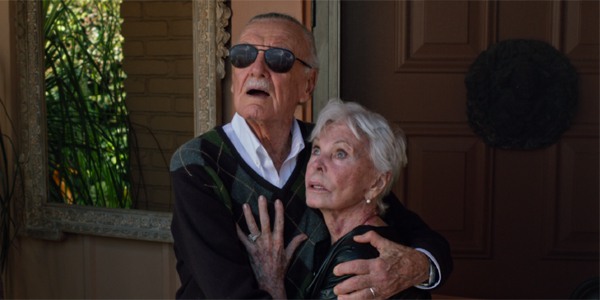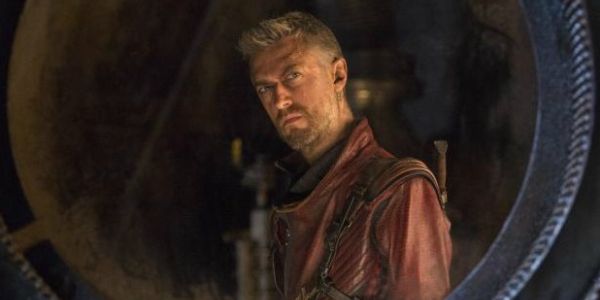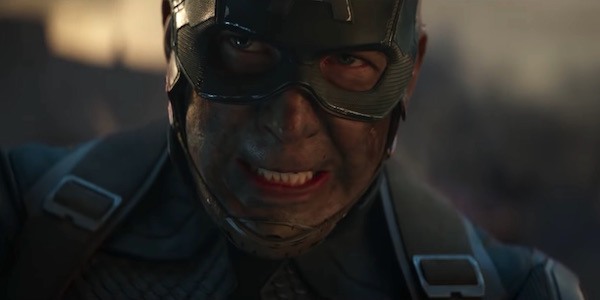Iron Man Creation Timeline- How Marvel's Gamble On Tony Stark Paid Off

With Avengers: Endgame being hailed as one of the biggest love letters to the MCU to date, it feels like a good time to revisit the film and the character that started it all, Iron Man. Believe it or not, the world almost got Tony Stark in theaters much sooner than when it actually premiered. Here's a breakdown of the years leading up to Iron Man, and the studios, actors, and directors who almost had a hand in it.
The Beginning- (1990)
The first mention of Iron Man in a film surfaced in 1990 in a couple of ways. Tony Stark was considered as a character who could possibly be included in Death Of The Incredible Hulk, but the idea was ultimately scrapped for Hulk sacrificing his own life instead. It's a shame we didn't get to see an early 90s live-action Tony, if only to see if it's as laughably bad as other live-action Marvel characters of the era.
Universal Studios had the rights to Iron Man during this time, and while Re-Animator director and Honey I Shrunk The Kids writer Stuart Gordon was approached to direct a low-budget feature, that never happened. That same year Robert Downey Jr. starred in the movie Too Much Sun, which was written and directed by his father Robert Downey Sr. It was just one of ten films the father and son duo would do together over the years.
The 20th Century Fox Years (1996-1997)
20th Century Fox ended up acquiring the rights to Iron Man, and from that point on some really interesting things happened. At least, more interesting things than whatever happened at Universal, which as mentioned before, didn't do a lot. The first eleven months of the character's acquisition were quiet, and then word surfaced in early 1997 a young actor fresh off of a big Hollywood film was interested in playing the hero.
That man was none other than Con/Air actor Nicolas Cage. Unfortunately, there's not a lot of information out there about any discussions that happened, or how serious Cage actually was about playing Tony Stark. What we do know is that he did a costume test for Tim Burton's Superman that same year, so maybe his interest laid more in playing a superhero than anything? We can only speculate, although it is worth noting he's done a handful of superhero roles since.
Stan Lee's Iron Man Script (1998-1999)
The year 1998 brought another big celebrity to Fox's doors, as Tom Cruise said he was interested in producing and starring in an Iron Man feature. Sometime later I-Robot screenwriter Jeff Vintar teamed up with Stan Lee to write a story that re-imagined Iron Man's origin and featured the villain M.O.D.O.K. as the central villain. Plans eventually fell apart, and Goldeneye screenwriter Jeffrey Caine was brought in retool the script.
Then, things took a surprising turn when the studio approached Quentin Tarantino to write and direct an Iron Man movie. What was his vision? Was Samuel L. Jackson involved? How many times did Tony Stark drop an f-bomb? It could've happened, but unfortunately Fox ended up selling off the rights. While the studio liked Lee and Vintar's script, they just had too many Marvel films in development to commit.
New Line Cinema's Iron Man Script (2000-2001)
It was the start of a new millennium, and with New Line Cinema in ownership of the rights to Iron Man, a new hope that a movie would be made was born. A new script was commissioned with Pirates of the Caribbean writers Ted Elliott and Terry Rossio and The Iron Giant's Tim McCanlies helping out with writing as well. This script was also an origin story, but with corporate villains.
Another interesting part about this script was that it allegedly included a Nick Fury cameo. According to rumors from insiders at the time (via Comics2Film), the S.H.I.E.L.D. Helicarrier was set to make an appearance, over a decade before it actually did in The Avengers. Coincidentally enough, New Line also entered into discussions with Joss Whedon to direct. Was it the Helicarrier mention that caught him? Because that connection is just too good.
Iron Man vs. Howard Stark? (2002-2004)
New Line Cinema finished the script in 2002, and New Line got John Q and The Notebook director Nick Cassavetes on board to direct. This time, the plot put Tony up against his father, Howard Stark. That's right, Howard Stark was the bad guy, and would eventually weaponize Tony's design to create, wait for it, War Machine.
Thankfully, nothing happened with that idea and New Line Cinema eventually lost Nick Cassavetes. (He released Alpha Dog not long after). With the studio's main prospect gone, New Line Cinema ended up relinquishing its rights to Iron Man, which sent it back to Marvel.
Back Home With Marvel (2005-2006)
After years away, Iron Man was finally home. Unfortunately, it had lost all interested parties in the process. For a time, Marvel struggled to find a writer due to it being strictly a Marvel production and the obscurity of Iron Man. Marvel decided to hold a campaign to raise awareness about the character, and commissioned future Deadpool director Tim Miller to make shorts that showcased the character's abilities.
The studio eventually landed Jon Favreau, who had a vision for a character finding redemption as a hero in what could be a bit of a spy thriller. He originally wanted to go with an unknown actor as the lead, but became hooked on Robert Downey Jr. after seeing how the actor's personal struggles mimicked that of Tony Stark. Marvel tried to push back on the hire, but Favreau wouldn't budge. The rest, as they say, is history.
It Wasn't Quite That Easy Though (2007)
Iron Man had its cast, a passionate director, and apparently, that was enough to go into filming. The script wasn't fully complete, which led to a lot of improvised dialogue, on-set rewrites, and actors doing multiple takes for lines they came up with on the spot. As Jeff Bridges would describe many years later, it was like shooting a $200 million student film.
For all intents and purposes, it could've been a train wreck. Yet, Iron Man succeeded in theaters and started one of the most impressive cinematic runs in movie history. It's even more impressive understanding the history involved, and how it could've all turned out radically different had a few things gone differently. Luckily, it didn't and audiences have been able to celebrate Robert Downey Jr.'s impressive run as the character for over a decade.
That run continues in Avengers: Endgame, which is currently in theaters. Stick with CinemaBlend for all the analysis on it and what comes next for Marvel in the future.






